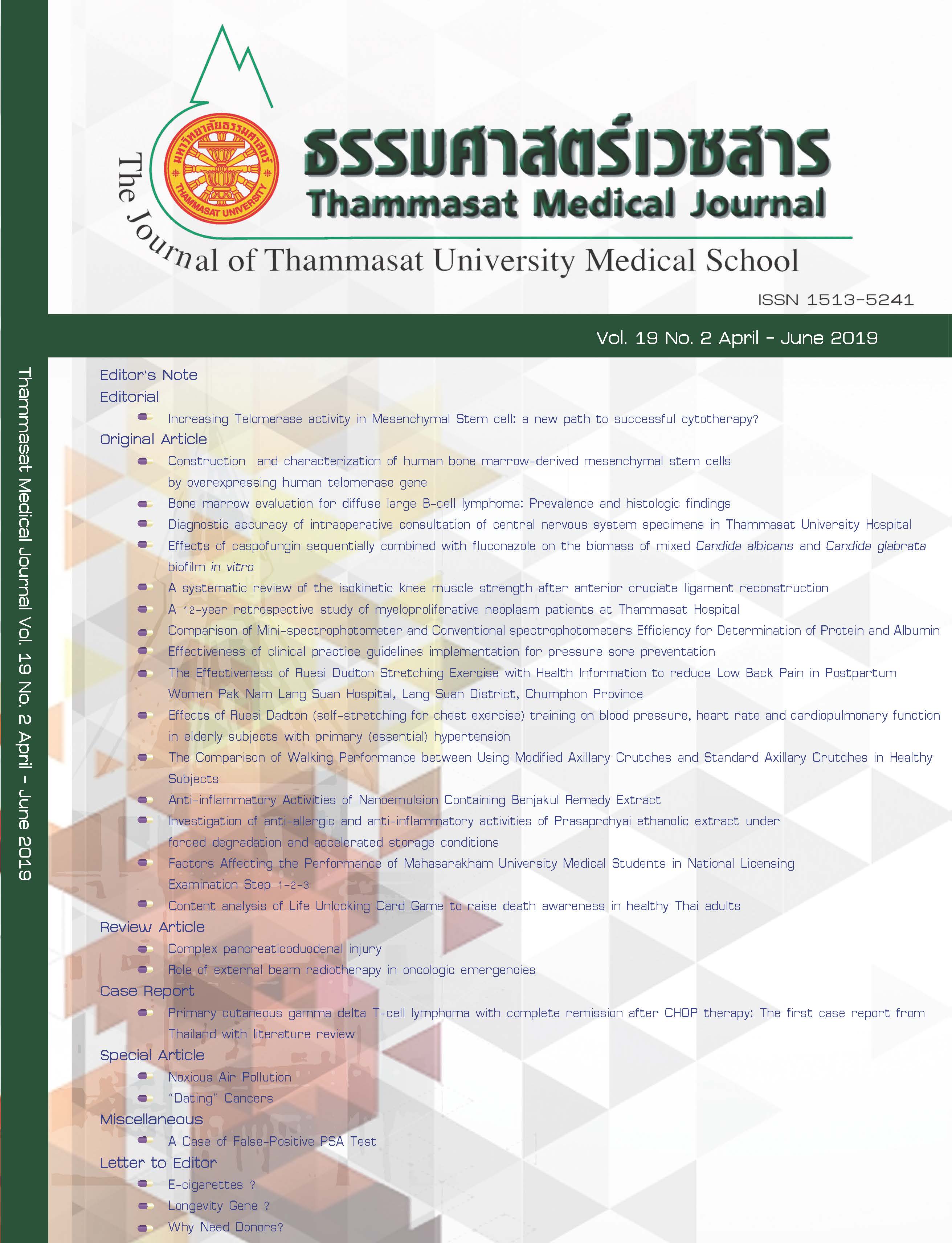Primary cutaneous gamma delta T-cell lymphoma with complete remission after CHOP therapy: The first case report from Thailand with literature review
Keywords:
Primary cutaneous gamma delta T-cell lymphoma, Thailand, diagnosis, CHOP, complete remissionAbstract
Primary cutaneous gamma delta T-cell lymphoma (PCGD-TCL) is a rare, clonal proliferation of mature activated gamma delta T-cells with cytotoxic phenotype. The skin lesion is epidermotropic with deep dermal or subcutaneous infiltrates. PCGD-TCL is usually resistant to chemotherapy and/or radiation with poor prognosis and median survival of 15 - 31 months. This first reported case of PCGD-TCL in Thailand was a 19-year-old male with multiple flesh color, velvety surface nodules at face and scalp, which had progressed in 3 months. Skin biopsy demonstrated epidermotropism with superficial dermal infiltration by small to medium size atypical lymphoid cells. The tumor cells were positive for CD3, TCR-gamma/delta, TIA-1 and CD4, and negative for betaF1, CD5, CD8, CD56, CD34, and Epstein-Barr encoding region (EBER) in situ hybridization. The disease stage was IA. After treatment with 8 cycles of CHOP chemotherapy, the patient achieved complete remission for 55 months. This PCGD-TCL case with unusual for 1) complete remission after CHOP chemotherapy and 2) tumor cell immunophenotype of CD4+ and CD56-.



